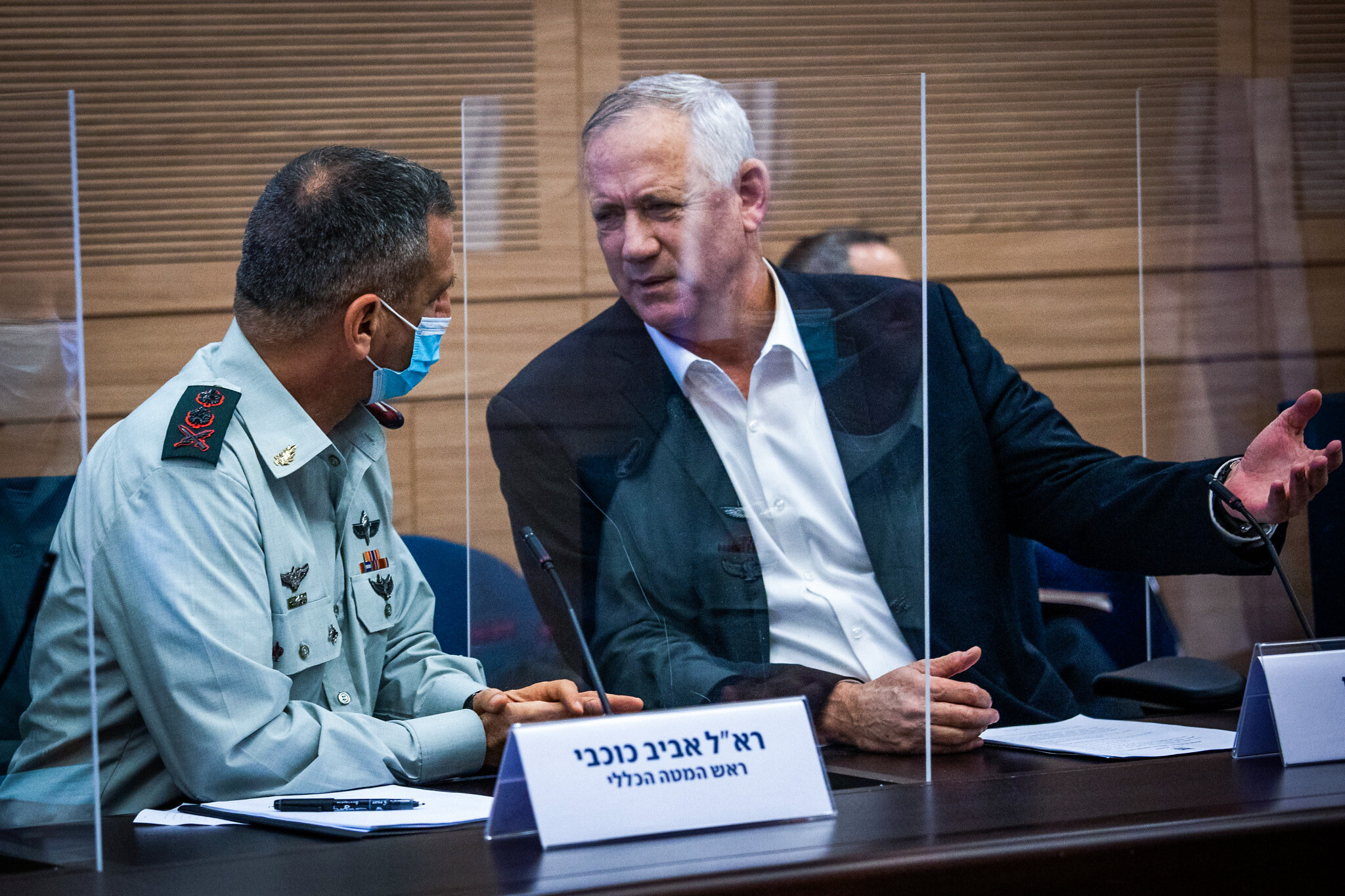As Gantz heads to Washington and negotiations falter in Vienna, American official tells Reuters that military chiefs will talk exercises for possible attack on Iran nuke facilities
Israeli and American military leaders are set to discuss possible military drills to practice destroying Iranian nuclear facilities in a potential worst-case scenario, a senior US official said on Wednesday.
The comment came as the faltering nuclear talks were set to resume on Thursday in Vienna, and as Defense Minister Benny Gantz flew to Washington for meetings with top US military leaders.
US and European representatives at the nuclear talks voiced pessimism and frustration over Iran’s demands last week.
The possible military drills would prepare for a scenario with Iran in which negotiations fail and US and Israeli leaders request a military strike, the US official told the Reuters news agency.
Ahead of takeoff for the US, Gantz said, “Iran is a threat to world peace and seeks to become an existential threat to Israel.”
“At the meetings, we will discuss possible courses of action to ensure that it stops its attempt to reach the nuclear arena and expand its activities in the region,” he said.
Gantz said he will meet with US Secretary of Defense Lloyd Austin and Secretary of State Antony Blinken.
The US official did not give details about the potential preparations.
“We’re in this pickle because Iran’s nuclear program is advancing to a point beyond which it has any conventional rationale,” the official told Reuters.
In October, US military leaders briefed White House national security adviser Jake Sullivan on military options for halting Iran’s nuclear program, the report said.
A Wednesday report said the Israel Defense Forces will hold a large-scale exercise over the Mediterranean in the spring with dozens of aircraft simulating a strike against Iran’s nuclear program.
In January, army chief Aviv Kohavi announced that he was instructing the military to draw up fresh plans for a strike against Iran’s nuclear program. The IDF received billions of shekels of additional funding to prepare for such an attack as part of the recently passed national budget.
Last month, Kohavi told the Knesset’s Foreign Affairs and Defense Committee that the army “is accelerating operational planning and preparedness to deal with Iran and the military nuclear threat.”
Though Israeli officials have stressed that Israel could carry out a strike without coordinating with the United States, some analysts have cast doubts on the IDF’s ability to do so, as several Iranian facilities are buried deep enough underground that it would require particularly powerful munitions, which currently only the US possesses.
Reports in recent weeks have indicated that the army is unprepared for dealing with Iran and months or more away from an actionable plan.
Talks set to resume in Vienna
The European Union, which is coordinating the indirect talks between Washington and Tehran, confirmed they would resume Thursday in Vienna after a break of a few days.
A US State Department spokesman said Wednesday that the US will swiftly determine whether Tehran is serious about the negotiations.
“We should know in pretty short order if the Iranians are going… to negotiate in good faith,” said the spokesman, Ned Price, warning that “the runway is getting very, very short for negotiations.”
The talks began in April but were suspended in June due to the election of a new Iranian president, only to resume last week.
After five days of talks, the United States said Iran did not appear to be serious about making progress. American and European representatives both accused the Iranians of having backtracked on previous agreements since the spring.
European diplomats urged Tehran to come back with “realistic proposals” after Iran’s delegation last week made numerous demands that were deemed unacceptable by the other parties to the accord — Britain, China, France, Germany and Russia. Even Russia, which has stronger relations with Iran, questioned Iran’s commitment to the process.
Washington has warned it will not let Tehran block negotiations for much longer while developing its nuclear program at the same time, but has not yet laid out an ultimatum.
The next few days look set to see a last-chance diplomatic push, although it appears ever more unlikely that the talks will lead to any breakthrough.
“It will not always be in our interest to seek a return to the JCPOA,” Price said, using the formal title of the landmark 2015 accord, the Joint Comprehensive Plan of Action.
The deal aimed to curb Iran’s nuclear program to ensure it could not develop an atomic weapon, in exchange for sanctions relief for Tehran.
It began unraveling in 2018 when then US president Donald Trump pulled out and reimposed sanctions, prompting Iran to start exceeding limits on its nuclear program the following year.
Iran has ramped up its nuclear program again in recent months by enriching uranium beyond the thresholds allowed in the agreement. Tehran has also restricted monitors from the UN atomic watchdog from accessing its nuclear facilities, raising concerns about what the country is doing behind closed doors.
US President Joe Biden has indicated that Washington is willing to return to the deal.
Iran has always insisted that its nuclear program is peaceful.

